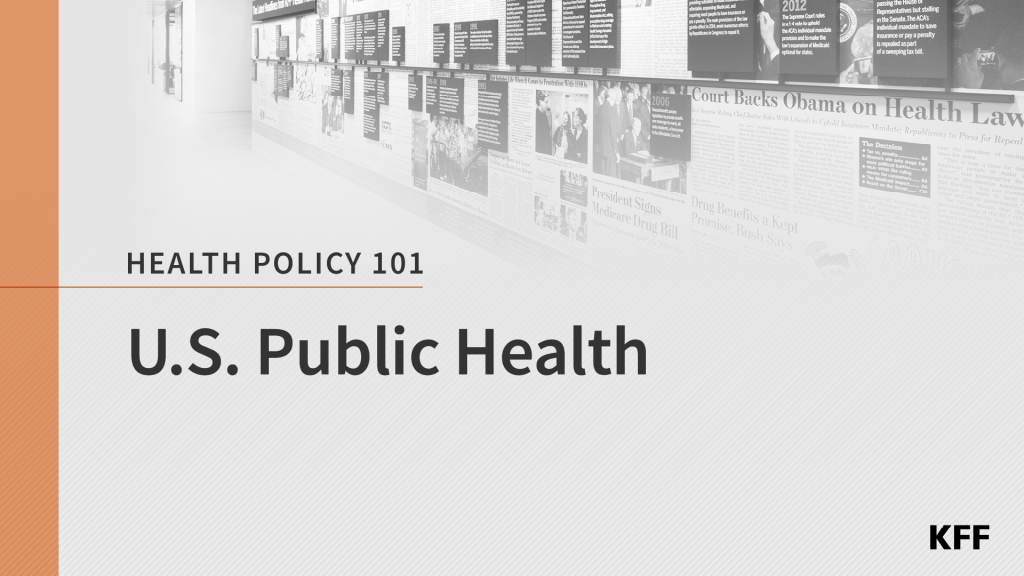What Testing Capacity Do We Need?
This post looks at potential benchmarks for estimating the number of coronavirus tests needed in the United States and compares them to current national, and state level, testing levels.
The independent source for health policy research, polling, and news.
KFF’s policy research provides facts and analysis on a wide range of policy issues and public programs.
KFF designs, conducts and analyzes original public opinion and survey research on Americans’ attitudes, knowledge, and experiences with the health care system to help amplify the public’s voice in major national debates.
KFF Health News is a national newsroom that produces in-depth journalism about health issues and is one of the organization’s core operating programs.
Health Policy 101 is a comprehensive guide covering fundamental aspects of U.S. health policy and programs, including Medicare, Medicaid, the Affordable Care Act, employer-sponsored insurance, the uninsured population, health care costs and affordability, women's health issues, and health care politics. The Public Health chapter examines how public health is governed and delivered in the United States. It includes explanations of key public health frameworks, services, capabilities and characteristics, how the public health system works in state, local and territorial governments, and public health funding, workforce, and communication challenges in an era of declining trust.
This post looks at potential benchmarks for estimating the number of coronavirus tests needed in the United States and compares them to current national, and state level, testing levels.
This month's tracking poll examines public attitudes toward and experiences with institutional racism and police violence, whether they have participated in recent protests, and perceptions related to health disparities, specifically with regard to coronavirus.
This weekend, the Centers for Disease Control and Prevention confirmed more U.S. cases of the latest international outbreak – coronavirus – which started in Wuhan, China. Josh Michaud, an Associate Director for Global Health Policy at KFF, offers perspective on the U.S. role and how response to this outbreak compares to others, such as SARS and the Ebola epidemic.
This slideshow provides an aggregated summary of Kaiser Family Foundation’s latest poll findings on the Zika virus. Results include how much Americans know about the virus, how worried they are about it, and what role they believe the government should be playing to fight its spread.
As the problem of prescription painkiller abuse has captured greater attention from policymakers and the media, the November Kaiser Health Tracking Poll explores the public’s connection to and knowledge of the issue, as well as their views of how to address it. A surprising 56 percent of the public say they have some personal connection to the issue – either because they say they know someone who has taken a prescription painkiller that wasn’t prescribed to them, know someone who has been addicted, or know someone who has died from a prescription painkiller overdose. While views of the health care law have been narrowly divided for much of the year, this month more say they have an unfavorable view of the law than a favorable one. The poll also includes views of the uninsured during the third open enrollment period under the health care law.
A new Kaiser Family Foundation analysis finds government agencies so far report spending approximately $1.9 billion in funding to respond to the Ebola outbreak internationally. The majority of this spending was by USAID (49%), followed by the Department of Defense (33%), and the Centers for Disease Control and Prevention (18%). The U.S. government enacted $5.
In the wake of the lead crisis affecting drinking water in Flint, Mich., the public now ranks contaminated drinking water among the most serious national health issues, trailing cancer, according to the April Kaiser Health Tracking Poll.
As the White House and Congress continue to debate new funding and other actions to address the nation’s opioid epidemic, the latest Kaiser Health Tracking Poll finds that most Americans believe the federal government is not doing enough to combat the recent increases in the number of people who are addicted to prescription painkillers (66%)…
This polling data note examines the public’s attitudes about e-cigarettes and vaping amid growing concerns about vaping-related lung illnesses and proposals by state and federal government to ban or limit the sale of e-cigarettes. It assesses views towards ban proposals and beliefs about their safety and impact on teenagers.
With more than 1,000 lung injuries and two dozen deaths nationally associated with vaping and e-cigarettes, a new KFF poll finds a narrow majority (52%) of the public supports a ban on the sale of fruit- and other flavored e-cigarettes, while 44% oppose it.
© 2025 KFF
